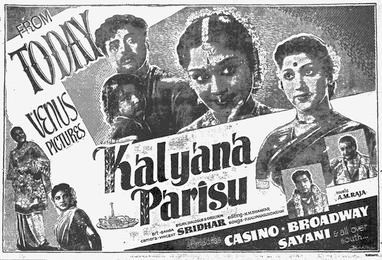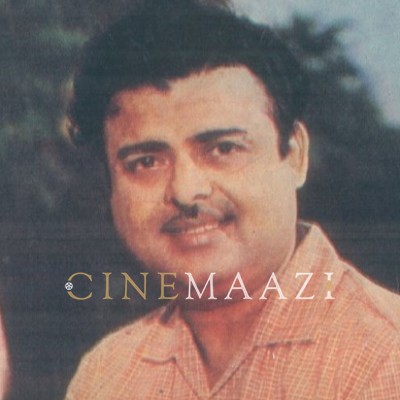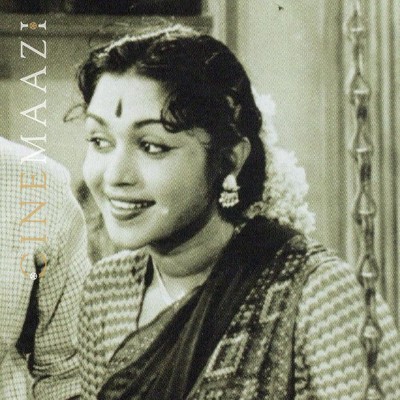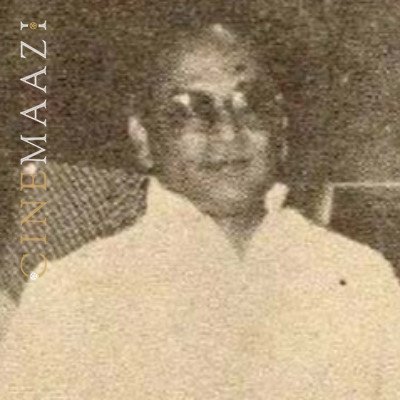This section is for paid subscribers only. Our subscription is only $3700/- for one full year.
You get unlimited access to all paid section and features on the website with this subscription.
Subscribe to read full article
This section is for paid subscribers only. Our subscription is only $37/- for one full year.
You get unlimited access to all paid section and features on the website with this subscription.
Not ready for a full subscription?
You can access this article for $2, and have it saved to your account for one year.
- Release Date1959
- GenreDrama
- FormatB-W
- LanguageTamil
- Run Time167 mins
- Length5332 meters
- Gauge35 mm
- Censor RatingU
- Censor Certificate Number26230
- Certificate Date19/03/1959
Bhaskar (Gemini Ganesan) and Vasanthi (B. Saroja Devi) are college mates. Due to a misunderstanding, Vasanthi complains to the authorities and as a result, Bhaskar is suspended from college. When Vasanthi learns the truth, she regrets her action. By then, Bhaskar takes up a job and is happy. Both fall in love. Bhaskar, who was staying at his friend’s place, leases a portion of Vasanthi’s house and moves in. Both Bhaskar and Vasanthi continue their relationship without their families’ knowledge. Vasanthi’s elder sister Geetha (Vijayakumari) supports the family by tailoring. Geetha starts liking Bhaskar and helps him whenever he is in need. Bhaskar falls ill; while Geetha is nursing him back to health, she falls in love with him. She confides her love for Vasanthi, who is shocked but decides to sacrifice her love for the sake of her sister. She pleads and convinces Bhaskar to marry Geetha, who accepts as he is unable to refuse Vasanthi’s request. Bhaskar marries Geetha but does not consummate the marriage.
Vasanthi moves to Bangalore to take up a job. When Vasanthi comes to know from Geetha that their marriage is not consummated, she writes to Bhaskar, pleading with him to fulfill his marital duties as Geetha’s husband. Geetha conceives and Vasanthi comes to Madras to assist her sister; Bhaskar and Vasanthi come into contact again. Meanwhile, Raghu (A. Nageswara Rao), who is Vasanthi’s office manager, falls in love with her and proposes to her. When she explains her past and her current predicament, he resigns and leaves the place. Geetha delivers a boy and then falls sick. Vasanthi returns to Madras to take care of Geetha and the child. Soon, Geetha suspects intimacy between Bhaskar and Vasanthi.
When the child becomes very fond of Vasanthi, Geetha gets angry. One day, she shouts at Vasanthi and at her husband, accusing them of having an affair. A shattered Bhaskar reveals the truth about their love and Vasanthi’s sacrifice, and Geetha is shocked. Unable to accept the groundless accusations of her sister, Vasanthi leaves home, meets with an accident, and is saved by a rich man (M.N. Nambiar). He takes care of her and requests her to stay with him. He mentions that his son has gone away months ago and is yet to return. Vasanthi stays with him. Bhaskar searches for Vasanthi but fails to locate her.
Geetha becomes seriously ill; her guilt of suspecting her sister affects her greatly. One day, the rich man’s son returns. He is Raghu, Vasanthi’s ex-manager. The rich man requests Vasanthi to marry Raghu but she states she is not inclined to marry. When Geetha is about to die, she pleads with Bhaskar to ensure that Vasanthi becomes the mother of their child and apologizes for her mistakes. Bhaskar and his son continue the search but are unable to locate Vasanthi.
Vasanthi, staying at Raghu’s place, finally agrees to marry Raghu as she decides that is the only way to make Geetha happy, not knowing Geetha is already dead. Their marriage invitation reaches Bhaskar. He rushes to meet her with his child, but by the time he reaches there, Vasanthi and Raghu are just about to get married. He blesses them and leaves the child with a letter to Vasanthi to accept the child as a marriage gift (Kalyanaparisu) from him and his deceased wife Geetha and walks away.
Playwright Sridhar's directorial debut, as mentioned earlier, this film set the pattern for his later works in which he repeated the motif of the eternal triangle and unrequited love.
The film brought in a great deal of money; its songs were stupendous hits. The songs, ‘Vadikkai Maranthathum eno...’, ‘Aasayinale Manam Anjuthu kenjuthu dhinam…’, ‘Thullatha Manamum Thullum…’, ‘Kathalile tholviyutran kalai oruvan…’, ‘Unnai kandu naan aada…’ and ‘Akkalukku valaikappu… athanin mugathil punsirippu…’ are evergreen even today.
It owed its phenomenal success in large part to its music composed by A M Raja, who was at his peak as a playback singer. The filmic convention of singing the same song twice, once in joy and once in sorrow, is followed. In fact, there are two such happy-sad songs.
The film is very much within the framework of traditional conduct, though the filmmaker tried to accommodate romantic love into this scheme of things. The concept of one man-one woman for a lifetime is emphasized. Vasanthi makes it clear that she marries Raghu only to avoid a scandal about her relationship with Baskar, not even for the sake of marital life for herself. In an earlier sequence, she falls at Baskar's feet, a recurring event in Tamil films. And in another scene, Baskar beats up his wife Geetha. Therefore, the man-woman relationship is treated in a very superficial way. The filmmaker treats romantic love in a relentlessly maudlin manner, with much weeping and wailing.
The film depends on quite a few contrived coincidences to bring about the turn of events. Baskar and Vasanthi fall in love after they collide with each other at a college function. She learns about a job opening from a piece of a newspaper in which the grocery comes wrapped.
The separate sub-plot for comic relief neither fits into the main story nor is it cinematic. However, these episodes were a major point of attraction and audio cassettes of this kind of humour are still sold. The film won a certificate of merit from the Government of India.

Cast
Crew
-
BannerVenus Pict, Madras
-
Director
-
Producer
-
Music Director
-
Lyricist
-
Cinematography
-
Editing
-
Writer












.jpg)



